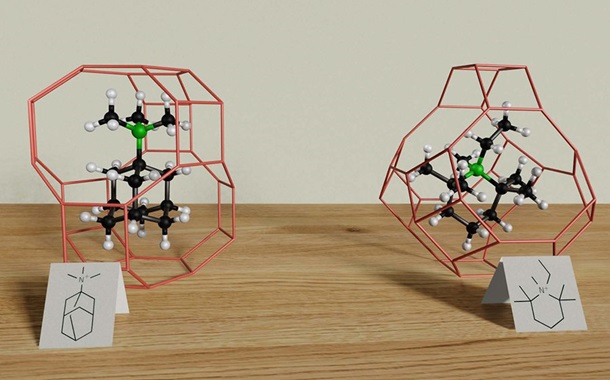Role of the Magnitude of Digital Adaptability in Sustainability of Food and Beverage Small Enterprises Competitiveness
Downloads
Doi: 10.28991/HIJ-2023-04-02-02
Full Text: PDF
Downloads
Deloitte. (2020). Deloitte Indonesia Business and Industry Updates. Deloitte, London, United Kingdom.
Goodwin, R., Moffatt, F., Hendrick, P., Stynes, S., Bishop, A., & Logan, P. (2021). Evaluation of the First Contact Physiotherapy (FCP) model of primary care: a qualitative insight. Physiotherapy, 113, 209–216. doi:10.1016/j.physio.2021.08.003.
Komatsu, H., Rappleye, J., & Uchida, Y. (2022). Is happiness possible in a degrowth society? Futures, 144, 103056. doi:10.1016/j.futures.2022.103056.
Mantovani, A., Rinaldi, E., Zusi, C., Beatrice, G., Saccomani, M. D., & Dalbeni, A. (2021). Coronavirus disease 2019 (COVID-19) in children and/or adolescents: a meta-analysis. Pediatric Research, 89(4), 733–737. doi:10.1038/s41390-020-1015-2.
Marketing, A. P. (2022). PMA Fresh Summit Represents Global Fresh Produce Supply Chain, Anaheim, California, United States.
Fiona, Theophilia, J., Juniarty, S., Ardiyano, B., Hutagaol, S. R. B., & Cuandra, F. (2023). Operational Management Analysis at Pt Sindo Manufaktur Industri. Transeconomics: Accounting, Business and Finance, 3(2), 422–437. doi:10.55047/transekonomika.v3i2.396.
Zeng, F., Lee, S. H. N., & Lo, C. K. Y. (2020). The role of information systems in the sustainable development of enterprises: A systematic literature network analysis. Sustainability (Switzerland), 12(8). doi:10.3390/SU12083337.
Rambey, T., Hasibuan, A. N., Prakoso, B., & Astuti, A. Y. (2021). Hipmikindo's Change Management Strategy in Building Technopreneur Resources by Establishing Entrepreneur Centers. Jurnal Bisnis, Logistik Dan Supply Chain (BLOGCHAIN), 1(2), 51–59. doi:10.55122/blogchain.v1i2.311.
Amankwah"Amoah, J., Danso, A., & Adomako, S. (2019). Entrepreneurial orientation, environmental sustainability and new venture performance: does stakeholder integration matter? Business Strategy and the Environment, 28(1), 79–87. doi:10.1002/bse.2191.
Wikström, F., Verghese, K., Auras, R., Olsson, A., Williams, H., Wever, R., Grönman, K., Kvalvåg Pettersen, M., Mí¸ller, H., & Soukka, R. (2019). Packaging Strategies That Save Food: A Research Agenda for 2030. Journal of Industrial Ecology, 23(3), 532–540. doi:10.1111/jiec.12769.
Tong, W., Mu, D., Zhao, F., Mendis, G. P., & Sutherland, J. W. (2019). The impact of cap-and-trade mechanism and consumers' environmental preferences on a retailer-led supply Chain. Resources, Conservation and Recycling, 142, 88–100. doi:10.1016/j.resconrec.2018.11.005.
Torelli, R., Balluchi, F., & Furlotti, K. (2020). The materiality assessment and stakeholder engagement: A content analysis of sustainability reports. Corporate Social Responsibility and Environmental Management, 27(2), 470–484. doi:10.1002/csr.1813.
Ferreira, V., Barreira, A. P., Loures, L., Antunes, D., & Panagopoulos, T. (2020). Stakeholders' engagement on nature-based solutions: A systematic literature review. Sustainability (Switzerland), 12(2), 1–27. doi:10.3390/su12020640.
Chappell, T., Geva, S., Hogan, J. M., Lovell, D., Trotman, A., & Perrin, D. (2022). Metagenomic Geolocation Using Read Signatures. Frontiers in Genetics, 13(February), 1–9. doi:10.3389/fgene.2022.643592.
Kwon, D., Kim, H., Kim, J., Suh, S. C., Kim, I., & Kim, K. J. (2017). A survey of deep learning-based network anomaly detection. Cluster Computing, 22(S1), 949–961. doi:10.1007/s10586-017-1117-8.
Phusavat, K., Comepa, N., Sitko-Lutek, A., & Ooi, K. B. (2011). Interrelationships between intellectual capital and performance: Empirical examination. Industrial Management & Data Systems, 111(6), 810–829. doi:10.1108/02635571111144928.
Tang, B., Bragazzi, N. L., Li, Q., Tang, S., Xiao, Y., & Wu, J. (2020). An updated estimation of the risk of transmission of the novel coronavirus (2019-nCov). Infectious Disease Modelling, 5, 248–255. doi:10.1016/j.idm.2020.02.001.
Balogun, A. L., Marks, D., Sharma, R., Shekhar, H., Balmes, C., Maheng, D., Arshad, A., & Salehi, P. (2020). Assessing the Potentials of Digitalization as a Tool for Climate Change Adaptation and Sustainable Development in Urban Centres. Sustainable Cities and Society, 53, 101888. doi:10.1016/j.scs.2019.101888.
Zimmermann, A., Schmidt, R., Sandkuhl, K., Jugel, D., Bogner, J., & Möhring, M. (2018). Evolution of Enterprise Architecture for Digital Transformation. Proceedings - IEEE International Enterprise Distributed Object Computing Workshop, EDOCW, 2018-October, 87–96. doi:10.1109/EDOCW.2018.00023.
Hoffmann, C. P., & Lutz, C. (2015). The impact of online media on stakeholder engagement and the governance of corporations. Journal of Public Affairs, 15(2), 163–174. doi:10.1002/pa.1535.
Bosetti, L. (2015). Engaging stakeholders through Facebook. The case of Global Compact LEAD participants. Proceedings of Business and Management Conferences. International Institute of Social and Economic Sciences, 3005158.
Gupta, M., Kar, A. K., & Jebarajakirthy, C. (2021). Special Section on Research on Engaging Stakeholders Online: The Bright and The Dark Sides. Australasian Journal of Information Systems, 25, 1–6. doi:10.3127/ajis.v25i0.3371.
Troise, C., & Camilleri, M. A. (2021). The Use of Digital Media for Marketing, CSR Communication and Stakeholder Engagement. Strategic Corporate Communication in the Digital Age, 161–174. doi:10.1108/978-1-80071-264-520211010.
Fanaja, R. A., Pradana, M., Saputri, M. E., & Utami, D. G. (2023). Knowledge Management as Driver of Women's Entrepreneurial Innovativeness. Journal of Human, Earth, and Future, 4(1), 1-9. doi:10.28991/HEF-2023-04-01-01.
Hughes, C., Swaminathan, V., & Brooks, G. (2019). Driving Brand Engagement through Online Social Influencers: An Empirical Investigation of Sponsored Blogging Campaigns. Journal of Marketing, 83(5), 78–96. doi:10.1177/0022242919854374.
Aristeidou, M., & Herodotou, C. (2020). Online citizen science: A systematic review of effects on learning and scientific literacy. Citizen Science: Theory and Practice, 5(1). doi:10.5334/cstp.224.
Xu, W., & Saxton, G. D. (2019). Does Stakeholder Engagement Pay Off on Social Media? A Social Capital Perspective. Nonprofit and Voluntary Sector Quarterly, 48(1), 28–49. doi:10.1177/0899764018791267.
Scuotto, V., Del Giudice, M., & Carayannis, E. G. (2017). The effect of social networking sites and absorptive capacity on SMES' innovation performance. Journal of Technology Transfer, 42(2), 409–424. doi:10.1007/s10961-016-9517-0.
Menne, F., Surya, B., Yusuf, M., Suriani, S., Ruslan, M., & Iskandar, I. (2022). Optimizing the Financial Performance of SMEs Based on Sharia Economy: Perspective of Economic Business Sustainability and Open Innovation. Journal of Open Innovation: Technology, Market, and Complexity, 8(1), 18. doi:10.3390/joitmc8010018.
Mallinguh, E., Wasike, C., & Zoltan, Z. (2020). Technology Acquisition and SMEs Performance, the Role of Innovation, Export and the Perception of Owner-Managers. Journal of Risk and Financial Management, 13(11), 258. doi:10.3390/jrfm13110258.
Camilleri, M. A. (2019). The SMEs' technology acceptance of digital media for stakeholder engagement. Journal of Small Business and Enterprise Development, 26(4), 504–521. doi:10.1108/jsbed-02-2018-0042.
Manning, B., Braam, G., & Reimsbach, D. (2019). Corporate governance and sustainable business conduct”Effects of board monitoring effectiveness and stakeholder engagement on corporate sustainability performance and disclosure choices. Corporate Social Responsibility and Environmental Management, 26(2), 351–366. doi:10.1002/csr.1687.
Falcone, P. M., González García, S., Imbert, E., Lijó, L., Moreira, M. T., Tani, A., Tartiu, V. E., & Morone, P. (2019). Transitioning towards the bio-economy: Assessing the social dimension through a stakeholder lens. Corporate Social Responsibility and Environmental Management, 26(5), 1135–1153. doi:10.1002/csr.1791.
Grebitus, C., Roscoe, R. D., Van Loo, E. J., & Kula, I. (2020). Sustainable bottled water: How nudging and Internet Search affect consumers' choices. Journal of Cleaner Production, 267, 121930. doi:10.1016/j.jclepro.2020.121930.
Zhang, J., Qu, X., & Sangaiah, A. K. (2018). A Study of Green Development Mode and Total Factor Productivity of the Food Industry Based on the Industrial Internet of Things. IEEE Communications Magazine, 56(5), 72–78. doi:10.1109/MCOM.2018.1700789.
Bai, C., Dallasega, P., Orzes, G., & Sarkis, J. (2020). Industry 4.0 technologies assessment: A sustainability perspective. International Journal of Production Economics, 229, 107776. doi:10.1016/j.ijpe.2020.107776.
Jia, S. S., Raeside, R., Redfern, J., Gibson, A. A., Singleton, A., & Partridge, S. R. (2021). #SupportLocal: How online food delivery services leveraged the COVID-19 pandemic to promote food and beverages on Instagram. Public Health Nutrition, 24(15), 4812–4822. doi:10.1017/S1368980021002731.
Babiak, K., & Trendafilova, S. (2011). CSR and environmental responsibility: Motives and pressures to adopt green management practices. Corporate social responsibility and environmental management, 18(1), 11-24. doi:10.1002/csr.229.
Bayram, G. E. (2020). Impact of Information Technology on Tourism. The Emerald Handbook of ICT in Tourism and Hospitality, 243–257, Emerald Publishing Limited, Bingley, United Kingdom. doi:10.1108/978-1-83982-688-720201015.
Jambrak, A. R., Nutrizio, M., Djekič, I., Pleslič, S., & Chemat, F. (2021). Internet of non-thermal food processing technologies (Iontp): Food industry 4.0 and sustainability. Applied Sciences (Switzerland), 11(2), 1–20. doi:10.3390/app11020686.
Paiola, M., Schiavone, F., Grandinetti, R., & Chen, J. (2021). Digital servitization and sustainability through networking: Some evidences from IoT-based business models. Journal of Business Research, 132, 507–516. doi:10.1016/j.jbusres.2021.04.047.
Long, T. B., Looijen, A., & Blok, V. (2018). Critical success factors for the transition to business models for sustainability in the food and beverage industry in the Netherlands. Journal of Cleaner Production, 175, 82–95. doi:10.1016/j.jclepro.2017.11.067.
Rudawska, E. (2019). Sustainable marketing strategy in food and drink industry: a comparative analysis of B2B and B2C SMEs operating in Europe. Journal of Business and Industrial Marketing, 34(4), 875–890. doi:10.1108/JBIM-05-2018-0171.
Brulhart, F., Gherra, S., & Quelin, B. V. (2019). Do Stakeholder Orientation and Environmental Proactivity Impact Firm Profitability? Journal of Business Ethics, 158(1), 25–46. doi:10.1007/s10551-017-3732-y.
Pantano, E., Priporas, C. V., Viassone, M., & Migliano, G. (2020). Does the stakeholder engagement result in new drinks? Evidence from family owned SMEs. Journal of Business Research, 119(April), 185–194. doi:10.1016/j.jbusres.2019.04.037.
Mahmoudabadi, A., Kanaani, M., & Ghazimahalleh, F. P. (2022). Modifying Hidden Layer in Neural Network Models to Improve Prediction Accuracy: A Combined Model for Estimating Stock Price. HighTech and Innovation Journal, 3(1), 45-55. doi:10.28991/HIJ-2022-03-01-05.
Pucci, T., Casprini, E., Galati, A., & Zanni, L. (2020). The virtuous cycle of stakeholder engagement in developing a sustainability culture: Salcheto winery. Journal of Business Research, 119, 364–376. doi:10.1016/j.jbusres.2018.11.009.
Kujala, J., Sachs, S., Leinonen, H., Heikkinen, A., & Laude, D. (2022). Stakeholder Engagement: Past, Present, and Future. Business and Society, 61(5), 1136–1196. doi:10.1177/00076503211066595.
Romero, S., Ruiz, S., & Fernandez"Feijoo, B. (2019). Sustainability reporting and stakeholder engagement in Spain: Different instruments, different quality. Business Strategy and the Environment, 28(1), 221–232. doi:10.1002/bse.2251.
Zhang, Y., Fong, P. S. W., & Yamoah Agyemang, D. (2021). What should be focused on when digital transformation hits industries? Literature review of business management adaptability. Sustainability (Switzerland), 13(23), 3447. doi:10.3390/su132313447.
Zhou, X., Smith, C. J. M. B., & Al-Samarraie, H. (2023). Digital technology adaptation and initiatives: a systematic review of teaching and learning during COVID-19. Journal of Computing in Higher Education. doi:10.1007/s12528-023-09376-z.
Pergantis, M., Varlamis, I., Kanellopoulos, N. G., & Giannakoulopoulos, A. (2023). Searching Online for Art and Culture: User Behavior Analysis. Future Internet, 15(6), 211. doi:10.3390/fi15060211.
Belyaeva, Z., Rudawska, E. D., & Lopatkova, Y. (2020). Sustainable business model in food and beverage industry – a case of Western and Central and Eastern European countries. British Food Journal, 122(5), 1573–1592. doi:10.1108/BFJ-08-2019-0660.
Ozturk, S. B., & Akoglu, A. (2020). Assessment of local food use in the context of sustainable food: A research in food and beverage enterprises in Izmir, Turkey. International Journal of Gastronomy and Food Science, 20, 100194. doi:10.1016/j.ijgfs.2020.100194.
Suseno, B. D. (2019). The strength of justified knowledge sharing on good manufacturing practices: Empirical evidence on food beverage joint venture company of Japan–Indonesia. Calitatea, 20(170), 130-135.
Martins, A., Branco, M. C., Melo, P. N., & Machado, C. (2022). Sustainability in Small and Medium-Sized Enterprises: A Systematic Literature Review and Future Research Agenda. Sustainability (Switzerland), 14(11), 1–26. doi:10.3390/su14116493.
Brunetti, F., Matt, D. T., Bonfanti, A., De Longhi, A., Pedrini, G., & Orzes, G. (2020). Digital transformation challenges: strategies emerging from a multi-stakeholder approach. TQM Journal, 32(4), 697–724. doi:10.1108/TQM-12-2019-0309.
Khayatzadeh-Mahani, A., Wittevrongel, K., Petermann, L., Graham, I. D., & Zwicker, J. D. (2020). Stakeholders' engagement in co-producing policy-relevant knowledge to facilitate employment for persons with developmental disabilities. Health Research Policy and Systems, 18(1), 1–17. doi:10.1186/s12961-020-00548-2.
Ninan, J., Phillips, I., Sankaran, S., & Natarajan, S. (2019). Systems thinking using SSM and TRIZ for stakeholder engagement in infrastructure megaprojects. Systems, 7(4), 1–19. doi:10.3390/systems7040048.
Aslam, H., Khan, A. Q., Rashid, K., & Rehman, S. UR. (2020). Achieving supply chain resilience: the role of supply chain ambidexterity and supply chain agility. Journal of Manufacturing Technology Management, 31(6), 1185–1204. doi:10.1108/JMTM-07-2019-0263.
Georgakalou, M., Kamariotou, M., & Kitsios, F. (2023). Evaluating Leaders' Strategic Thinking and Entrepreneurial Characteristics Using Semantic Analysis. Businesses, 3(1), 181–197. doi:10.3390/businesses3010013.
Molina-Castillo, F.-J., Meroño-Cerdán, A.-L., Lopez-Nicolas, C., & Fernandez-Espinar, L. (2023). Innovation and Technology in Hospitality Sector: Outcome and Performance. Businesses, 3(1), 198–220. doi:10.3390/businesses3010014.
Amor-Esteban, V., Galindo-Villardón, M. P., García-Sánchez, I. M., & David, F. (2019). An extension of the industrial corporate social responsibility practices index: New information for stakeholder engagement under a multivariate approach. Corporate Social Responsibility and Environmental Management, 26(1), 127–140. doi:10.1002/csr.1665.
Ahmed, S. A. K. S., Ajisola, M., Azeem, K., Bakibinga, P., Chen, Y. F., Choudhury, N. N., Fayehun, O., Griffiths, F., Harris, B., Kibe, P., Lilford, R. J., Omigbodun, A., Rizvi, N., Sartori, J., Smith, S., Watson, S. I., Wilson, R., Yeboah, G., Aujla, N., ... Yusuf, R. (2020). Impact of the societal response to covid-19 on access to healthcare for non-covid- 19 health issues in slum communities of Bangladesh, Kenya, Nigeria and Pakistan: Results of pre-covid and covid-19 lockdown stakeholder engagements. BMJ Global Health, 5(8). doi:10.1136/bmjgh-2020-003042.
Ukabi, O. B., Uba, U. J., Ewum, C. O., & Olubiyi, T. O. (2023). Measuring Entrepreneurial Skills and Sustainability in Small Business Enterprises Post-Pandemic: Empirical Study from Cross River State, Nigeria. International Journal of Business, Management and Economics, 4(2), 132–149. doi:10.47747/ijbme.v4i2.1140.
Matarazzo, M., Penco, L., Profumo, G., & Quaglia, R. (2021). Digital transformation and customer value creation in Made in Italy SMEs: A dynamic capabilities perspective. Journal of Business Research, 123, 642–656. doi:10.1016/j.jbusres.2020.10.033.
Costa Melo, D. I., Queiroz, G. A., Alves Junior, P. N., Sousa, T. B. de, Yushimito, W. F., & Pereira, J. (2023). Sustainable digital transformation in small and medium enterprises (SMEs): A review on performance. Heliyon, 9(3), 13908. doi:10.1016/j.heliyon.2023.e13908.
Lazaro-Mojica, J., & Fernandez, R. (2021). Review paper on the future of the food sector through education, capacity building, knowledge translation and open innovation. Current Opinion in Food Science, 38, 162–167. doi:10.1016/j.cofs.2020.11.009.
Yurioputra, A. D. (2022). Impact of Foreign Direct Investment of Indonesia Investment Authority on Economic Growth: Strengthening National Economic Recovery to Overcome Global Recession in 2023. Jurnal Pajak Dan Keuangan Negara (PKN), 4(1S), 404–413. doi:10.31092/jpkn.v4i1s.1920.
Nopparat, N., & Motte, D. (2023). Business model patterns in the 3D food printing industry. International Journal of Innovation Science. doi:10.1108/IJIS-09-2022-0176.
Enzenbacher, D. J. (2020). Exploring the food tourism landscape and sustainable economic development goals in Dhofar Governorate, Oman: Maximising stakeholder benefits in the destination. British Food Journal, 122(6), 1897–1918. doi:10.1108/BFJ-09-2018-0613.
Martínez-Navalón, J. G., Gelashvili, V., & Debasa, F. (2019). The impact of restaurant social media on environmental sustainability: An empirical study. Sustainability (Switzerland), 11(21). doi:10.3390/su11216105.
Elidemir, S. N., Ozturen, A., & Bayighomog, S. W. (2020). Innovative behaviors, employee creativity, and sustainable competitive advantage: A moderated mediation. Sustainability (Switzerland), 12(8). doi:10.3390/SU12083295.
Cho, T., Cho, T., Choi, H., Yang, S., & Zhang, H. (2023). User Satisfaction Study for Sustainability of YouTube Content Quality: Focusing on Ski Technology. Businesses, 3(1), 114–128. doi:10.3390/businesses3010009.
Crush, J. S., Kazembe, L., & Nickanor, N. (2023). Opportunity and Survival in the Urban Informal Food Sector of Namibia. Businesses, 3(1), 129–149. doi:10.3390/businesses3010010.
Civera, C., de Colle, S., & Casalegno, C. (2019). Stakeholder engagement through empowerment: The case of coffee farmers. Business Ethics, 28(2), 156–174. doi:10.1111/beer.12208.
- This work (including HTML and PDF Files) is licensed under a Creative Commons Attribution 4.0 International License.






















